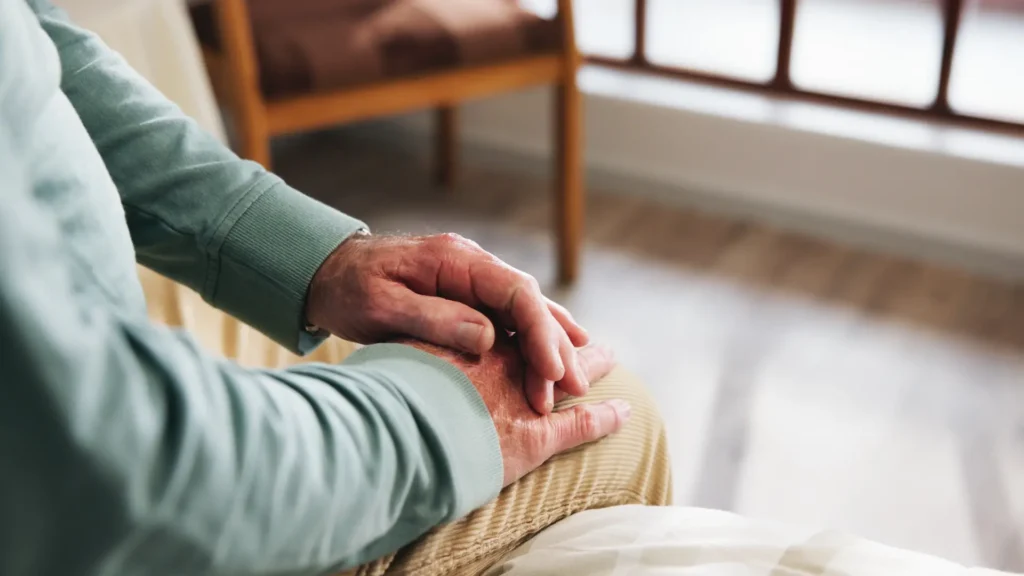
We at Biohackr Health in San Francisco and Palo Alto are focused on helping our Bay Area patients address many key health measures because the data keeps showing how interrelated healthy aging is to these basic tenets- blood sugar, cholesterol, weight, and muscle mass. Muscle mass seems to be important, particularly as we age to help with weight, activity, blood sugar, and now a new study shows muscle loss correlates with dementia.
This was a study published in December 2024, in the European Medical Journal, “MRI Links Muscle Loss to Early Dementia Risk in Older Adults: RSNA 2024.” RSNA is the Radiological Society of North America, and in their meeting in December 2024 they showed that skeletal muscle loss is an early warning sign of cognitive decline. They used MRI scans of the brain looking at the temporalis muscle to predict future dementia. “Sarcopenia” is the fancy way of stating muscle loss.
Their study was based on the knowledge that this is a low cost, non invasive method to assess skeletal muscle status. Skeletal muscle mass naturally declines as you age. Previous studies have shown the temporalis muscle is a good proxy for the systemic skeletal muscle.
Study:
- 621 Cognitively healthy patients from the Alzheimer’s Disease Neuroimaging Initiative
- MRI analysis of the cross section of temporalis muscle
- Mean follow up of 5.8 years
- Monitored dementia incidence, cognitive and functional changes, brain structure
Findings?
SIGNIFICANT. They found those with smaller temporalis muscles had a 60% higher likelihood of Alzheimers or dementia, even after adjusting for other risk factors. Smaller muscle correlated with
- declining memory scores
- decreased functional ability
- reduced brain volumes.
They conclude two things. 1. Tracking sarcopenia (muscle loss) may be an early marker for dementia risk. and 2. “By incorporating interventions such as resistance training, increased physical activity, and improved nutrition, it may be possible to slow or mitigate the effects of muscle loss and its cognitive consequences.”
Our thoughts and clinical recommendations at Biohackr Health?
It is unclear if those with smaller temporal muscles could have been helped if they built up their muscles ahead of time. But study after study keeps showing that being active and building muscle improves healthspan. Given the safety of things like creatine, exercise, walking and being generally active, and study after study which show improvement in healthspan from doing those things (read our blogs!), we are fans. If it helps prevent dementia too? Great. Add that to the list of good things. Sacropenia (muscle loss) and cognitive decline seems to be a real thing. For those in SF and Palo Alto, even those beyond the Bay Area, what can you do at Biohackr Health?
- Come in and get our creatine. We only use German creatine monophosphate powder for highest effectiveness and purity. Creatine is not just for Bay Area seniors. Starting earlier with supplementation will set you up better for healthy aging. Come in to our clinics on Union St. in San Francisco or Bryant St. in Palo Alto.
- Read blogs on creatine creatine blogs and other ways like NAD and hormone support to improve your active life general body blogs
- Test your muscle mass currently with an In Body Scan
- Test and treat your NAD levels
- Test and treat your hormone levels
- Get weight off to be more active and improve health. If overweight, understand how the GLP1 agonists like semaglutide and tirzepatide help a multitude of issues. When on these medications, you need to actively work on building muscle.
- Test your dementia markers. Are you genetically predisposed? Does dementia run in your family?
- Blood glucose control. Just as muscle mass may be related to dementia risk, glucose control and avoiding diabetes and pre diabetes may be critical. We offer testing for blood sugar, insulin levels, continuous glucose monitors, probiotics helpful for glucose control, and a telehealth visit, if metformin or other medications may be needed.